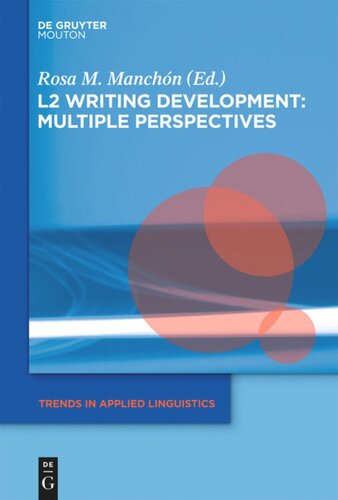

Most ebook files are in PDF format, so you can easily read them using various software such as Foxit Reader or directly on the Google Chrome browser.
Some ebook files are released by publishers in other formats such as .awz, .mobi, .epub, .fb2, etc. You may need to install specific software to read these formats on mobile/PC, such as Calibre.
Please read the tutorial at this link: https://ebookbell.com/faq
We offer FREE conversion to the popular formats you request; however, this may take some time. Therefore, right after payment, please email us, and we will try to provide the service as quickly as possible.
For some exceptional file formats or broken links (if any), please refrain from opening any disputes. Instead, email us first, and we will try to assist within a maximum of 6 hours.
EbookBell Team

4.4
22 reviewsThe aim of this pioneering volume is to advance our understanding of written language learning in instructed SLA by offering a collection of empirical studies in which the contribution of diverse theoretical perspectives to our understanding of L2 writing development will be explored. As such, the book represents a further attempt to situate written language learning at the core of applied linguistics research, in general, and SLA research, in particular, hence attempting to redress the oral bias of theoretical and empirical work in these fields. It adds a further building block onto recent TESOL initiatives aimed at understanding "development" in second and foreign language learning. Continuity from one chapter to another is provided by adherence to a consistent chapter model. The volume will be of great interest to academics in the disciplines of second/foreign language acquisition (SLA) and second/foreign language (L2) writing.